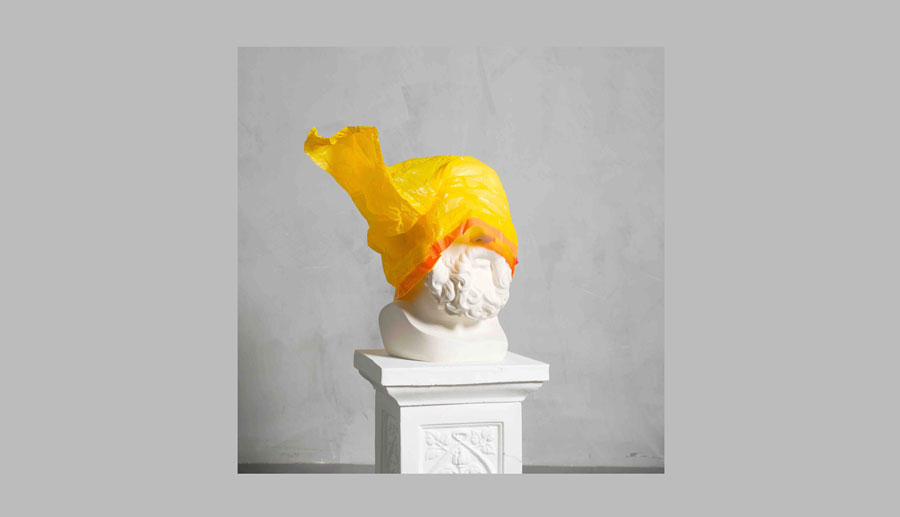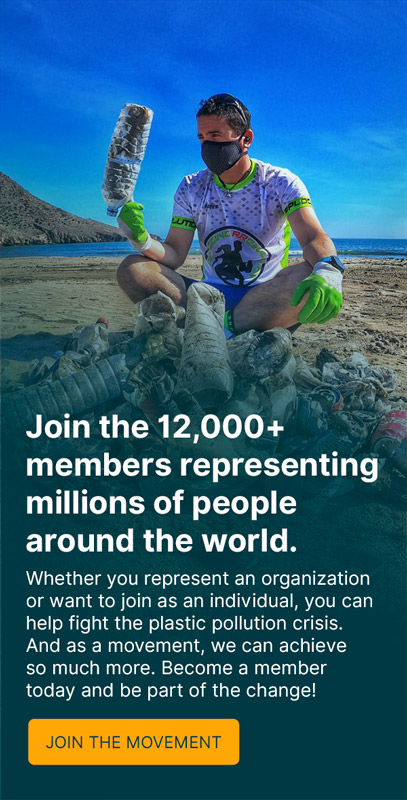Adopted in 2019 by the European Union, the Directive on the reduction of the impact of certain plastic products on the environment, more commonly known as the single-use plastics (SUP) Directive, requires EU Member States to adopt a number of measures to reduce the use of, and pollution from, single-use plastics most commonly found in the environment. EU countries have 2 years, (until July 2021), to transpose the EU Directive into their national law and adopt measures to ensure successful implementation of the Directive.
The Directive notably sets EU wide bans on certain SUP (e.g. plates and cutlery, straws and stirrers, cotton buds, cups and food containers in expanded polystyrene) and also requires EU countries to:
- Reduce the consumption of single-use plastic cups and food containers in their country, by putting in place specific bans or quantitative reduction targets.
- Establish Extended Producer Responsibility (EPR) schemes for some packaging (e.g. wrappers and packets, bags) as well as for wipes, balloons and tobacco products, so as to ensure producers cover the cost of collection, treatment, awareness-raising and clean-up.
- Achieve 90% separate collection of single-use plastic bottles by 2029,
- Establish new markings on cups, tobacco products, wet wipes and menstrual items to indicate the presence of plastics, the appropriate means of disposal and the impacts on the environment when not properly disposed of.
Our analysis of the situation in 19 countries shows that only a few countries have adopted measures to transpose the Directive and fight plastic pollution resulting from single-use plastics. In many countries, the transposition process has not started and/or little information is available on the expected transposition process. Several countries have started to transpose the easiest part, e.g. the EU wide bans set in the Directive, but have yet to adopt key measures that will actually determine the level of ambition and the resulting environmental benefits on the ground. While there is still a long way to go, there are a few countries leading the way - now we need others to follow suit.
Break Free From Plastic calls all EU countries to adopt ambitious measures to move away from single-use plastics, including further bans, quantitative reduction targets, strong EPR schemes with eco-modulation, promotion of sustainable alternatives to SUP and DRS for beverage containers to ensure high collection rates and reduce pollution. EU countries should refrain from granting exemptions to bio-based and biodegradable plastics, that are covered under the same umbrella as conventional plastics in the Directive and are not a solution to plastic pollution. Instead, they should focus on supporting reusable alternatives, which are widely available and blossoming.
Detailed Member State Assessment (alphabetical order in English under each category)
Below is our preliminary assessment of 19 Member States transposition of the SUP Directive. This includes various information sources accessed through the movement, and organised into the following categories:
- In green, are the countries that have already adopted most of the measures required to transpose the SUP Directive into national law, and have even gone further to include additional measures to reduce SUPs. These countries need to consolidate the work, remove potentially damaging exemptions and ensure effective implementation going forwards.
- In yellow, are the countries that are advanced in the process of transposition, even though measures may not have been legally adopted yet. These countries should keep going to finalise the transposition and increase ambition.
- In orange, are the countries that have barely begun the transposition process or have been delaying it, and where the ambition is clearly low. These countries need to speed up and rapidly increase ambition to ensure they respect the transposition deadline.
- In red, are the countries that have not started the legal process at all; urgent action is required in order for these countries to respect the transposition deadline and legislate on single-use plastics.
For a more detailed analysis on some of the Member States (France, Germany, Italy, Spain, The Netherlands and Hungary), you can also check out the recent news article from Seas At Risk in addition to the information below.
France
The French Law on the Circular Economy, adopted in February 2020, transposes most of the measures of the SUP Directive in most cases in a nearer future than what the SUP Directive foresees and even goes further on some topics. For example, the law also bans plastic confettis, lids for cups, and packaging for fruits and vegetables (with some exceptions) in addition to the bans included in the SUP Directive.
Also, the law foresees that all foodware used for on-site consumption in hotels, restaurants and cafes, will have to be reusable by 2023; and by 2022 for those used in daily home meal deliveries. It also includes an objective to halve the consumption of plastic bottles by 2030, and to phase-out all single-use plastics packaging by 2040. Yet, detailed measures that will be important for a successful implementation, notably with regards to the above reduction targets and extended producer responsibility, are yet to be adopted. In addition, France still grants concerning exemptions for single-use plastics bags partly made of bio-based sources and compostable, as well as for tea bags that are biodegradable.
Austria
The waste management law is currently being revised in Austria and includes articles aiming at transposing the SUP Directive. Yet many of the details are still to be set, as well as the level of ambition. The focus of the discussions has been on the establishment of a Deposit Return System (DRS) for single-use plastic bottles. The government has faced strong pressure from the industry that opposes a DRS, despite the fact that it is the only proven method to reach the legally binding 90% separate collection target for bottles. The Austrian government is expected to reach a final decision on whether to set a DRS by the end of 2020.
Belgium
A draft law to transpose the EU bans of certain plastic products as required in the SUP Directive, as well as to ban plastic bags, is in the process of being adopted. Yet this draft law does not include other measures of the Directive, such as reduction targets. There are also ongoing developments in Flanders, notably with regards to EPR.
Denmark
The Danish government has initiated the transposition process, and is following the transposition in a timely manner. There is a great potential for EPR, yet many detailed measures still need to be adopted and will largely define the level of ambition. Denmark, which has had a DRS for plastic bottles, glass bottles and cans for water, soft drinks and beers for decades, expanded the scheme on the 1st of January 2020 to include juice and other beverage containers.
Germany
Germany is in the process of adopting a law that transposes EU bans of certain SUP as required by the SUP Directive. A DRS system for most single-use plastic bottles, as well as cans, has been in place since 2003. However, many of the measures of the SUP Directive are yet to be adopted, and the level of ambition remains rather low.
Hungary
Only a few days after the draft law foreseeing SUP bans became public, the Hungarian government withdrew it. Later, a less ambitious yet progressive legislative proposal transposing the bans on certain single-use plastics was adopted by the Parliament. A DRS may be tested from July 2021 for single-use plastics and glass bottles and cans.
Ireland
Discussions and consultations have started on the transposition of the SUP Directive, and the recently formed government is expected to publish its draft waste and circular economy action plan in the coming weeks. The government has committed to put in place a DRS for plastic bottles and cans and will adopt legislation authorising its establishment by mid 2021, as well as to set a levy on single-use coffee cups with an objective to eventually eliminate these.
The Netherlands
A draft legislation was proposed to transpose the SUP Directive. Many detailed measures still need to be proposed, notably for EPR, and will determine the level of ambition. Also the draft legislation currently falls short of setting consumption reduction targets for single use plastic cups and containers, and of proposing measures to increase the use of reuse solutions. On a more positive note, the draft law includes some positive elements (e.g. the objective to reach 90% separate collection of bottles already by 2022) and the Netherlands have recently extended their DRS on single-use plastic bottles to cover also smaller bottles.
Portugal
The Portuguese government has initiated the consultations on the transposition of the SUP Directive as well as kickstarted the process, but most measures have not yet been adopted. Portugal will implement a DRS for plastic bottles, glass bottles and cans from January 2022.
Spain
The draft of a new law on waste foresees the transposition of the SUP Directive. The draft includes positive elements, e.g. reduction targets, but falls short of ambition on many issues including DRS, that is still not foreseen in Spain. The draft law remains to be adopted and its ambition should be increased, in line with the recommendations provided by the NGOs. A few Spanish regions (Balearic Islands and Navarra) have already adopted comprehensive sets of measures on single-use plastics, including further bans, which are not even considered in the draft Spanish law.
Estonia
An impact assessment commissioned by the Estonian government should be finalised (and made public) in the coming weeks which will provide more insight on upcoming developments. The government is then expected to start drafting measures. A DRS for single-use plastic bottles has been in place in Estonia since 2005.
Greece
Although the Greek government has announced measures, the draft legislation has not been made public. From the information the movement has, some developments seem promising, such as the setting of reduction targets for single use plastic cups and bottles, and the application of measures in the public sector already from January 2021. Yet legal measures are still to be adopted, and the details and level of ambition remain uncertain.
Italy
The legislative process to transpose the SUP Directive has only just started, with limited ambition in the draft measures. It’s therefore too early stages in the legislative process to properly assess and validate its content. Italy has had a ban on plastics bags, except for biodegradable and compostable bags, since 2013 and on cotton buds made of plastic since 2019. Italy also plans to introduce a plastic tax in January 2021.
Lithuania
The government proposed a draft legislation that transposes the SUP Directive, with no higher ambition than the legal requirements of the Directive. The draft law has been stalled in the Parliament process for adoption. Lithuania set up a DRS for single use plastic bottles in 2016.
Slovenia
While some discussions have been initiated on the EU bans of certain single-use plastics and on DRS, the Slovenian government has largely delayed the adoption of measures.
Bulgaria
The government has not yet started the legal process to transpose the SUP Directive.
Croatia
The government has not initiated the legal process to transpose the SUP Directive yet. A DRS for single-use plastic bottles has been in place since 2005; but milk bottles that were excluded from the DRS in 2014 will be reintegrated in the scheme from January 2021.
Cyprus
The government has not yet started the legal process to transpose the SUP Directive into national law.
Poland
The government has not yet started the legal process to transpose the SUP Directive into national law.



